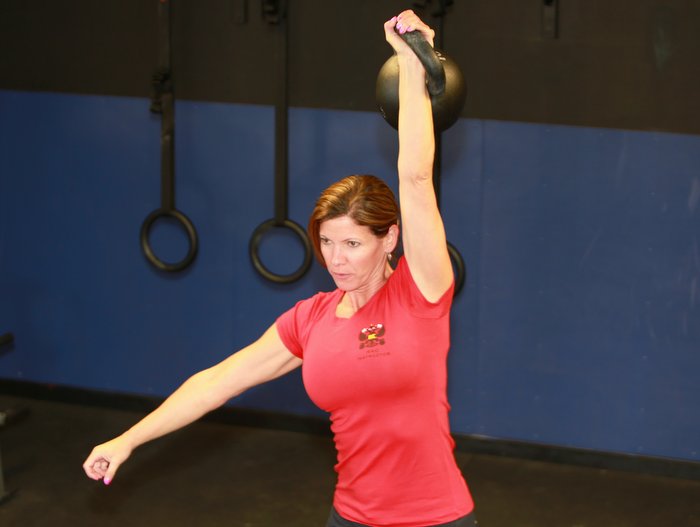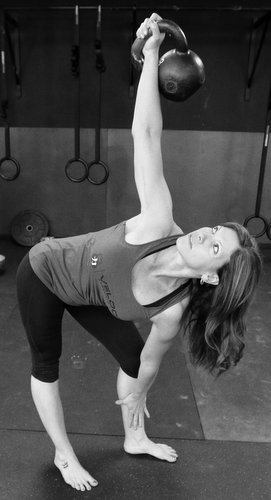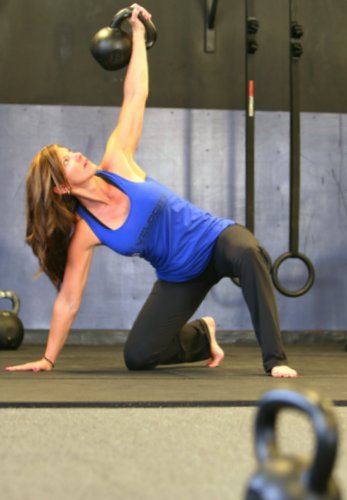
Before becoming a fitness coach, I was a Paramedic for over 20 years. Responding to 9-1-1 calls for that length of time taught me a lot—and I honed the skill of trusting my instincts. I learned how to read people and situations within a matter of seconds. I became acutely aware that situations can change in an instant, and that sometimes we must adapt and adjust even the best plans. I also realized that my temperament, and a calm, confident, commanding presence could determine the outcome of a situation. If I had a poor attitude or questioned my abilities, things could quickly go sour. These abilities became very important life skills that I now use daily when coaching, and in my own training.
These skills came from a need to be aware—a practice of being mindful and present. As a Paramedic, I was taught a step-by-step rapid assessment of the pre-hospital scene and of the patient. Within a matter of seconds, I needed to take in a global view of the scene, establish safety for the patient and practitioners, determine the mechanism of injury, and take action to stabilize life-threatening injuries. Once all of that was done, I constantly needed to reassess the patient’s condition—which could rapidly change for better or worse. I wasn’t “great” at all of those things in the beginning of my career. It took time and practice to sharpen these skills without falling into common traps like tunnel vision or failing to re-evaluate whether my interventions were making my patient better or worse.
 Being mindful requires an attentiveness that helps us recognize the conditions around and within us. Most people are not really “there” most of the time. Instead of being present, their minds are caught up in their worries, fears, insecurities, the past, or the future. All of this disconnect and distraction is not productive when we are training. Injuries, poor performance, or just a lousy workout are often side effects of not being fully present.
Being mindful requires an attentiveness that helps us recognize the conditions around and within us. Most people are not really “there” most of the time. Instead of being present, their minds are caught up in their worries, fears, insecurities, the past, or the future. All of this disconnect and distraction is not productive when we are training. Injuries, poor performance, or just a lousy workout are often side effects of not being fully present.
Practicing mindful training is a worthwhile discipline. When your mind is with your body, you are established and engaged in the present moment. We can then observe and respect how our bodies feel, then we can work on trusting our instincts. We will know if we need to push harder or back off, if we should add weight or go lighter for more reps? We will also know if our recovery methods are effective.
If you are wondering how to incorporate mindfulness into your kettlebell training, then try this in your next training session to reevaluate your direction on every set:
- Perform a set of an exercise
- Take 10 seconds and ask yourself what you should do next
- Choose from the following
- Use a heavier kettlebell for the next set
- Decrease weight for next set
- All is good, repeat exactly as before
- Do less reps
- Do more reps
- Stop entirely
A training plan—and the workouts within that training plan—must be adaptable and adjustable based on how we feel in the present moment. When we are present and attuned to our bodies, then we can listen to our instincts and align the workout based on those observations. If your training plan calls for a max effort lift on a day you feel less than 100%, it will probably be counterproductive. Why not change or modify your plan until you have a day that you feel like a badass? Why push when it won’t go well, then beat yourself up mentally because you didn’t hit the number you were “supposed” to hit that day? Does it really matter for the big picture?
 In general, I find that men have a harder time putting their ego aside and dialing back their workouts when they aren’t feeling 100%. Their tendency is often to “push through it”. This is usually when an injury occurs. On the other hand, women tend to fear trying a heavier lift—even if they’re feeling strong. In both situations, it pays to have a good coach who can help you read the signals from your body, and guide you in the appropriate direction.
In general, I find that men have a harder time putting their ego aside and dialing back their workouts when they aren’t feeling 100%. Their tendency is often to “push through it”. This is usually when an injury occurs. On the other hand, women tend to fear trying a heavier lift—even if they’re feeling strong. In both situations, it pays to have a good coach who can help you read the signals from your body, and guide you in the appropriate direction.
Your attitude can make or break your performance as well. And none of this is an excuse to phone it in, effort-wise. If you tell yourself you “can’t”, you will be right every time. Remaining calm, confident, and commanding a good outcome will generally lead to great things!
Next time you head to the gym, try practicing some mindful training. I say “practice” because it takes repeating this action to improve. You will catch yourself drifting away many times, and that’s ok as long as you can become aware and shift your mind back to the center. Over time you will learn to read your body and your internal performance cues.
Your body provides you with constant feedback, and you need to listen. The more you listen, the more feedback your body will provide. Eventually you will be able to use the insight and awareness you gain from this practice throughout other areas of your life as well.
***
Robin Sinclear, RKC-II, is the co-owner of Velocity Strength and Fitness in Chico, California. Her website is VelocityChico.com. She can be reached by email at velocitystrong@gmail.com or by phone at 530-520-2297. Follow Velocity Strength and Fitness on Facebook, Instagram, and Twitter.